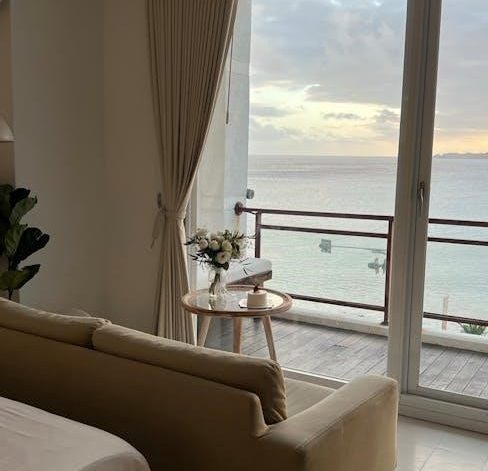An Idaho Room Rental Agreement is a legal contract outlining terms for renting a room, protecting both tenants’ and landlords’ rights. It covers rent, utilities, and common spaces.
1.1 What is an Idaho Room Rental Agreement?
An Idaho Room Rental Agreement is a legally binding contract between tenants and landlords that outlines the terms for renting a room. It specifies rent, utilities, and shared spaces, ensuring clarity and fairness. This agreement is separate from a lease and provides a framework for cohabitation, addressing responsibilities and expectations. It protects both parties by detailing payment terms, duration, and termination protocols, ensuring a smooth rental experience in Idaho.
1.2 Importance of a Room Rental Agreement in Idaho
A Room Rental Agreement is essential in Idaho as it protects both tenants and landlords by clarifying responsibilities and expectations. It ensures legal compliance, reduces potential disputes, and provides a clear understanding of rent, utilities, and shared spaces. This document acts as a safeguard, offering peace of mind for all parties involved and ensuring a harmonious rental experience. Its importance lies in its ability to prevent misunderstandings and provide a legally binding framework for room rentals in Idaho.

Key Components of an Idaho Room Rental Agreement
A room rental agreement in Idaho typically includes tenant and landlord details, property description, rent terms, security deposit information, and the agreement’s duration. These components ensure clarity and legal compliance.
2.1 Tenant and Landlord Information
An Idaho room rental agreement must include detailed information about both the tenant and landlord, such as full names, current addresses, and contact details. This section ensures clarity regarding who is responsible for the rental property and the terms outlined in the agreement. It also typically includes the lease term start and end dates, as well as the property’s address. This information is legally binding and essential for establishing a clear landlord-tenant relationship. Accurate details are crucial to avoid future disputes and ensure both parties have a formal record of the arrangement.
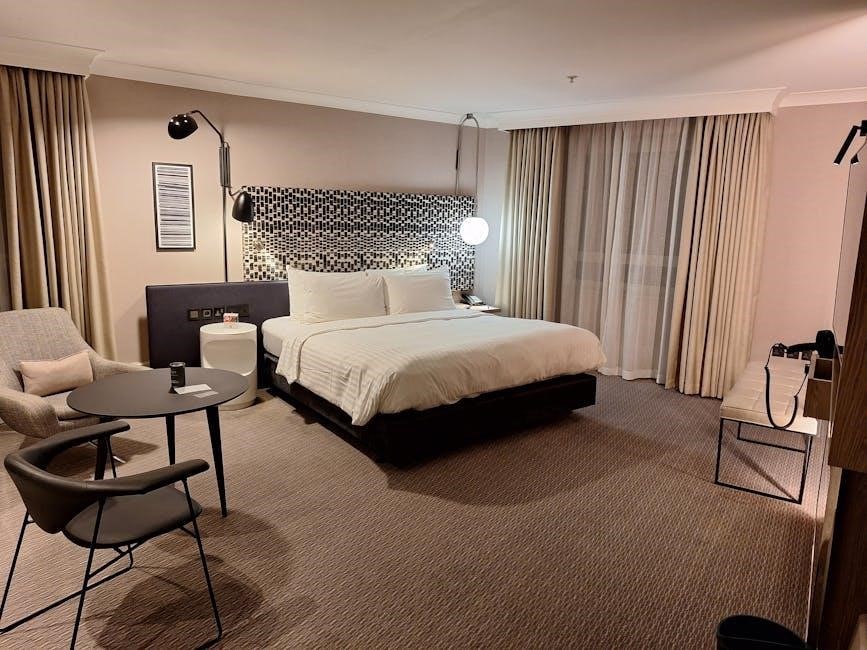
2.2 Description of the Rental Property
The Idaho room rental agreement includes a detailed description of the rental property, such as its address, the specific room being rented, and any shared or private spaces. This section outlines the physical characteristics of the room, including furniture or appliances provided, if any. It also clarifies access to common areas like kitchens or bathrooms. The property description ensures both parties have a clear understanding of the space being rented, reducing potential disputes over the condition or use of the property. This section is vital for defining the rental arrangement accurately.
2.3 Rent and Payment Terms
The Idaho room rental agreement specifies the rent amount, due dates, and acceptable payment methods. It outlines late payment fees and penalties for missed payments. This section ensures clarity on financial obligations, including the total rent, split among roommates if applicable. Payment terms may also include details about security deposits, utility responsibilities, and any additional fees. Clear rent terms help prevent disputes and establish a structured payment schedule for all parties involved in the rental agreement. This section is essential for maintaining financial transparency and accountability.
2.4 Security Deposit Details
Idaho law requires landlords to provide a receipt for the security deposit. The deposit covers damages or unpaid rent. Annual interest must be paid to the tenant. The agreement must detail how and when the deposit is returned after tenancy ends. Clarity in these terms prevents disputes and ensures compliance. Non-compliance can lead to legal consequences for the landlord, protecting both parties in the rental agreement.
2.5 Term of the Agreement
The Idaho Room Rental Agreement specifies the lease term, including start and end dates. It can be fixed-term or month-to-month. Fixed-term agreements outline the exact duration, while month-to-month agreements can be terminated with proper notice. The agreement must detail how and when it can be renewed or terminated. This clarity ensures both parties understand their obligations and the duration of the rental period, avoiding misunderstandings.
Legal Aspects of Idaho Room Rental Agreements
This section explores key legal aspects, including landlord rights, security deposit laws, eviction processes, and tenant rights, ensuring compliance with Idaho state regulations for rental agreements.
3.1 Landlord’s Right to Entry
In Idaho, landlords have the legal right to enter a rental property, but they must provide tenants with reasonable notice, typically 24 hours, except in emergencies. This right is usually outlined in the rental agreement and is governed by state laws to ensure tenant privacy rights are respected. Landlords may enter for maintenance, repairs, or to show the property to potential buyers or renters. Tenants should be informed of the purpose of the entry to maintain a fair and respectful landlord-tenant relationship.
3.2 Security Deposit Laws in Idaho
In Idaho, landlords are required to provide tenants with a receipt for any security deposit received. The landlord must pay annual interest on the deposit if it exceeds one month’s rent. Security deposits must be returned within 30 days after the tenant vacates the property, minus any deductions for damages or unpaid rent; If a landlord fails to comply with these regulations, they may face legal penalties. Tenants should ensure all agreements regarding security deposits are clearly outlined in the rental contract to avoid disputes.
3.3 Eviction Process and Tenant Rights
In Idaho, the eviction process begins with a landlord providing a 3-day notice for non-payment of rent or a 5-day notice for lease violations. If the tenant fails to comply, the landlord can file an eviction lawsuit. Tenants have the right to receive proper notice and a court hearing if they contest the eviction. Idaho law protects tenants from unlawful evictions, such as lockouts without a court order. Tenants must also follow legal procedures, including vacating the property or seeking a court stay if they believe the eviction is unjust.
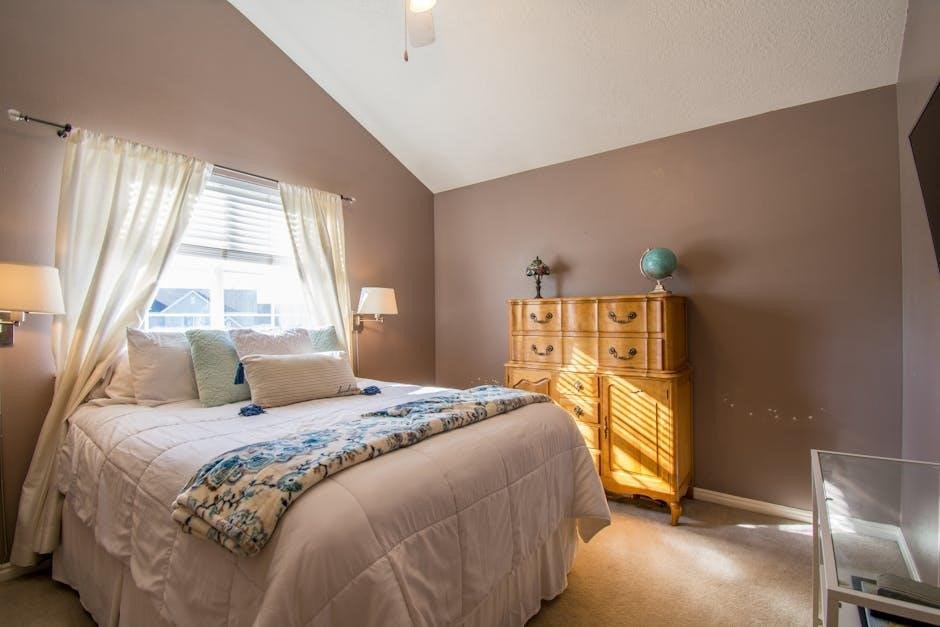
How to Create an Idaho Room Rental Agreement
Download a template, fill in tenant and landlord details, rent terms, and responsibilities. Ensure all parties sign the agreement to make it legally binding and clear.
4.1 Downloading a Template
Idaho room rental agreement templates are widely available online in PDF and Word formats. They can be downloaded from legal websites, rental associations, or official portals. Ensure the template is specific to Idaho and complies with state laws. Choose a template that includes all necessary sections, such as tenant and landlord details, rent terms, and security deposit clauses. Downloading a professional template saves time and ensures the agreement is legally binding and comprehensive.
4.2 Filling Out the Agreement
Filling out an Idaho room rental agreement requires careful attention to detail. Start by entering the names and contact information of both the tenant and landlord. Clearly describe the rental property, including the address and specific details of the room being rented. Specify the rent amount, payment methods, and due dates. Include terms for utilities, shared spaces, and house rules. Detail the security deposit, its amount, and conditions for refund. Outline the lease duration and termination clauses. Ensure all fields are accurately completed to avoid disputes and ensure legal compliance. Double-check all information before finalizing.
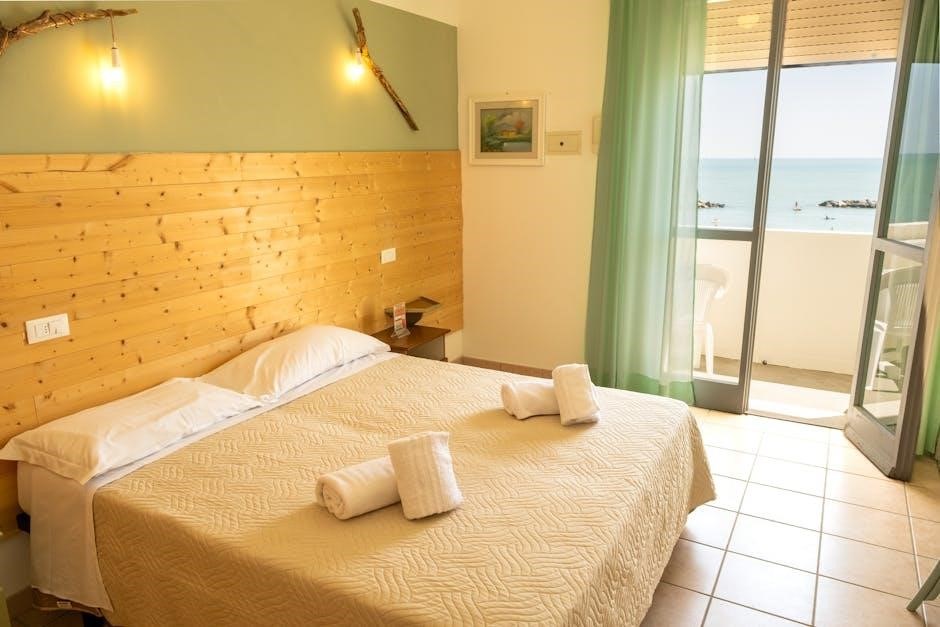
4.3 Signing the Agreement
Once the agreement is filled out, both the tenant and landlord must sign and date it. Witnesses are recommended to add legal validity. Ensure all parties review the document carefully before signing. The tenant should receive a copy, and the landlord retains the original. Signatures confirm mutual agreement to the terms, providing a legally binding contract. This step is crucial for enforcing the agreement in case of disputes. Proper execution ensures clarity and protection for both parties under Idaho law.
Common Mistakes to Avoid
Common mistakes include not including key terms, overlooking legal requirements, and failing to have the agreement witnessed, which can lead to disputes and legal issues.
5.1 Not Including Key Terms
One common mistake is omitting essential clauses such as rent payment details, security deposit terms, utility responsibilities, and house rules. These omissions can lead to misunderstandings and disputes. Clearly defining each party’s obligations ensures clarity and protects both tenants and landlords. Including specific terms like payment deadlines, late fees, and termination protocols is crucial. Without these details, the agreement may be deemed incomplete, potentially leading to legal issues. Always ensure all critical aspects of the rental arrangement are explicitly stated in the document.
5.2 Overlooking Legal Requirements
Ignoring Idaho’s legal requirements can lead to disputes and penalties. Key legal aspects include security deposit laws, landlord right-to-entry protocols, and eviction procedures. Landlords must provide receipts for security deposits and pay annual interest. Rental agreements must comply with state laws, such as required disclosures and prohibited clauses. Overlooking these can result in legal challenges and financial losses. Ensuring the agreement aligns with Idaho’s landlord-tenant laws is essential to avoid potential issues. Always verify legal requirements before finalizing the document.
5.3 Not Having a Witness
Failing to have a witness for the room rental agreement can lead to credibility issues in legal disputes. A witness provides an additional layer of verification, ensuring both parties agree to the terms. Without one, enforcing the agreement becomes more challenging. Idaho does not require witnesses for rental agreements, but having one adds security and clarity. It is a precautionary step to avoid future misunderstandings and ensure both tenants and landlords are protected. A witnessed agreement strengthens its validity and demonstrates mutual consent.
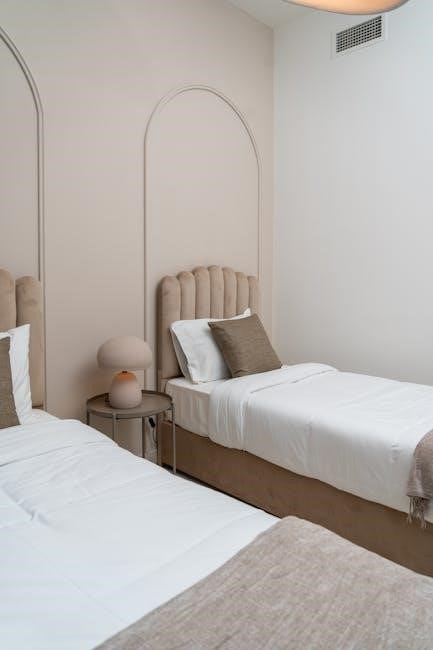
Benefits of Using an Idaho Room Rental Agreement
An Idaho Room Rental Agreement provides clarity on responsibilities, ensures legal protection for both parties, and reduces the risk of disputes by outlining clear terms upfront.
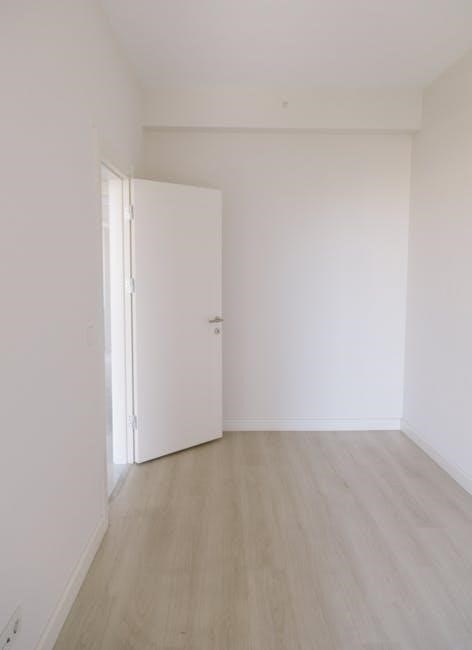
6.1 Clarity of Responsibilities
An Idaho Room Rental Agreement ensures clear definitions of roles and obligations for both tenants and landlords. It outlines rent payment terms, utility responsibilities, and shared space usage. By detailing expectations, the agreement minimizes misunderstandings and disputes. Tenants understand their financial commitments and property upkeep duties, while landlords are assured of timely payments and proper care of their property. This clarity fosters a harmonious living environment and ensures all parties know their rights and responsibilities from the start.
6.2 Legal Protection for Both Parties
An Idaho Room Rental Agreement provides legal protection for both tenants and landlords by clearly defining rights and responsibilities. It ensures landlords are protected from property damage and non-payment of rent, while tenants are safeguarded against unfair practices. The agreement adheres to Idaho’s landlord-tenant laws, including security deposit regulations and eviction processes. By having a written contract, both parties can resolve disputes more effectively and rely on legal recourse if necessary, ensuring a fair and binding arrangement for all involved.
6.4 Reduced Risk of Disputes
An Idaho Room Rental Agreement minimizes disputes by clearly outlining rent, utilities, and house rules. It aligns with Idaho’s landlord-tenant laws, ensuring fairness and transparency. By defining expectations upfront, it reduces misunderstandings over financial responsibilities and shared spaces. This legally binding document provides a clear reference point for resolving conflicts, fostering a harmonious living environment and protecting both parties from potential legal issues arising from miscommunication or unclear terms.
An Idaho Room Rental Agreement is essential for protecting both tenants and landlords, ensuring clarity and fairness in shared living arrangements while minimizing potential conflicts.
7.1 Final Thoughts on Idaho Room Rental Agreements
An Idaho Room Rental Agreement is a vital tool for establishing clear expectations and protecting both tenants and landlords. It ensures that all parties understand their responsibilities, from rent payments to utility allocations. By outlining the terms of shared living spaces, it helps prevent conflicts and provides a legal framework for resolving disputes. Using a well-drafted agreement fosters a harmonious living environment and safeguards the interests of everyone involved. It’s a practical solution for maintaining order and clarity in rental arrangements across Idaho.
7.2 Encouragement to Use the Agreement
Using an Idaho Room Rental Agreement is highly recommended to ensure a smooth and legally secure rental experience. It provides clarity on responsibilities, rent terms, and shared spaces, reducing potential disputes. Both tenants and landlords benefit from the clear guidelines and legal protection it offers. By having a written agreement, all parties can avoid misunderstandings and enjoy a harmonious living arrangement. It’s a practical and essential step for anyone renting or leasing a room in Idaho, fostering a positive and structured rental relationship.

